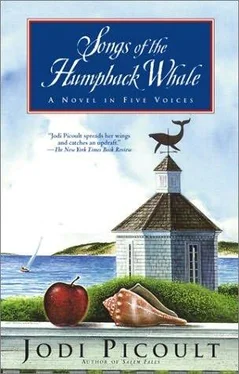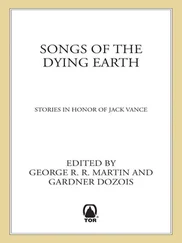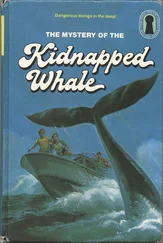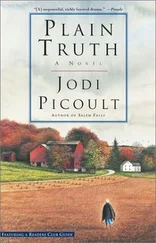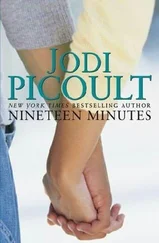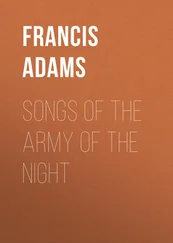I am reminded of a time that I watched Hadley bud grafting. He took a bud from a flowering apple tree and grafted it to the branch of an old tree that hadn’t been bearing fruit. With a sharp knife, he made a T-shaped cut in the bark of the old tree. He said it was very important to cut only the bark, not the wood of the tree. Then like a whittler, he pried away the folds of bark. He had the branch from the younger tree in a plastic baggie. He sliced off a middle-section bud, taking a little piece of the meat of the branch. To my surprise there was a leaf inside-I never really gave much thought to where the leaves were before they actually came out. Hadley cut off the leaf and gave it to me and then pushed the bud under the bark flaps of the old tree. He wrapped it tight with a greenish tape the way you might wrap a sprained ankle.
I asked him when this would start to grow, and he told me in about two weeks they’d know if the bud had taken. If it did, the stub of the leaf stem would be green. If it didn’t, both the bud and the leaf would have dried up. Even if the graft took, the bud wouldn’t branch until next spring. He told me that the great thing about grafting like this was that an old tree, a dead tree, could be made into something new. Whatever strain of apple was grafted would grow on that particular branch. So in theory you could have four or five different apple varieties coming off of one tree, all different from the original fruit the tree used to bear.
I pull away a blanket from the floor of the back seat. Underneath someone-Sam?-has put bushels of apples: Cortlands and Jonathans and Bellflowers and Macouns and Bottle Greenings. I am amazed that I can pick all these out by sight. Intuition tells me there are more in the trunk, and cider. All of these things to take with us to California.
I reach for a Cortland and take a large, loud bite. I interrupt my father, who is still talking. “Oh,” he says, “you took some with you, did you?” He has been saying something about the air quality in Massachusetts versus in L.A. He continues to talk, but neither my mother nor I listen. She is hungrily watching me with this apple.
I stretch out the other half to her. She smiles. She takes a bite even bigger than mine. Juice runs down the side of her mouth but she makes no effort to wipe it away. She finishes the apple down to its core. Then she unrolls the window and tosses it onto the road. She leans her head out the window. Her hair blows into her face, hiding parts of it and illuminating others.
A motorcycle swerves on the other side of the road. It comes close enough to alarm my father and to break my concentration. The Doppler effect, I think, listening to the engine scream lower and lower as it disappears. But it doesn’t really disappear. It just leaves my field of vision, temporarily.
My mother catches my eye: Be strong for me. Be strong for me. This silent chant fills the car. There is something to be said for the fact that my father cannot hear a thing. My mother’s thoughts come in waves, pulling me towards her like a tide: I love you. I love you.
You are not going to believe this, but when I was a kid my father had this old radio upstairs in the barn that didn’t work, and I always figured if we ever got it going we’d hear all those old radio things: Amos and Andy, Pepsodent commercials, fireside chats. I imagined the voices would crackle like lousy phone connections, swallowing their own syllables. I used to bug my father daily to twist a green wire around a yellow one, or to poke at the huge pitted speaker, but he’d tell me to do whatever else I was supposed to be doing and that was the end of that.
My dad was almost fifty when I was born, and this radio was a thing from his heyday, I don’t know, but he wouldn’t let me touch it. It looked just like you are picturing it: large, wooden carved, slick shiny mahogany inlaid with brass, a speaker bigger than my face, a dial that was cracked by a fall. My father, knotted, patient, would follow me up to the hayloft to the ledge where the radio sat, impressive as a contemporary jukebox. I begged him to tinker with it, to make it run as he had the tractor and the hand-pump (he was like that), I begged because I wanted to hear his story.
My father had told me time and time again he had no patience for electric things, as he called them. He told me to put my time to better use. But this radio, it had mystery. What it was doing in a hayloft, I don’t know.
When I was fourteen I took a book on electronics out of the library and began to fidget with all the black and red snaked wires I could find in my house. I became fascinated with tangles. I took apart my alarm clock and put it back together. I took apart the telephone and put it back together. I even dismantled the conveyor belt we used to sort the apples for market. I began to wonder about the insides of other things. I did all this without attracting the attention of my father. Then I removed the back panel of the radio one Sunday and, scared of going further, left it right next to the radio for the next day.
But that was the night that the apples began to rot. It was the strangest thing. We had a hundred acres, and this disease, it was a plague, really, spread from east to west, slowly, hitting about twenty acres overnight, our best trees. We spent the next day spraying and pruning and trying all the other tricks in the book. The second night, the Macouns began to fall from the trees. My father took up smoking, which he’d quit. He checked the balance in the savings account. In the middle of the night I sneaked up to the hayloft. I lay in the piles of dry grass and timothy, imagining the Big Band swing sounds, the sweet Andrews Sisters, filling the arched roof and settling over the pickled beams. Then I screwed the back plate onto the radio.
Don’t expect miracles, we lost half our crop that year. It had nothing to do with the damn radio; it was a parasite whose scientific name I have forgotten. At fourteen, what did I know? Little white things, like potato bugs, only more deadly. When my parents moved to Florida six years ago I had the radio fixed. I was twenty, I still expected to hear Herb Alpert, and I got Madonna. I laughed when I heard her, garbled, like an old gramophone.
It had nothing to do with the apples, did I say that already?
(From an article Oliver sits down to write for the Journal of Mammology:)
I hope they never come back.
Detailed analysis of humpback whale songs from the low- to midlatitude waters of the eastern North Pacific (Payne et al., 1983) and the western North Atlantic have shown that the songs change rapidly and progressively over time, obeying unwritten laws of change.
Previously, humpback whales were thought to sing only during the winter months, when they occupy low-latitude wintering grounds, and during migration to and from these grounds (Thompson et al., 1979 , and others). Our observations between June and August in the high-latitude feeding area of Stellwagen Bank seemed to confirm these reports. In approximately 14h of recording during the mid-season, we heard only unpatterned sounds and no songs.
She must be coming back, or she wouldn’t have taken Rebecca. But you won’t find Oliver Jones apologizing. She’s the one at fault here. She’s the one who is to blame. I still have her mark on my face.
Until recently the only complete humpback whale songs recorded on high-latitude feeding grounds in any season were those reported by McSweeney et al. (1983) from two recordings made in southeast Alaskan waters in late August and early September. These recordings, which were the result of listening for 155 days during five summers, showed abbreviated versions of the wintering ground song of humpback whales from the eastern North Pacific, and contained the same material sung in the same order as the Hawaiian songs from the surrounding winter seasons.
Читать дальше
